SLAT167 February 2024 MSPM0C1103 , MSPM0C1103-Q1 , MSPM0C1104 , MSPM0C1104-Q1
Insights of the 8-Bit and 16-Bit MCU Market Trend
It has been decades since the first 8-bit and 16-bit MCUs were introduced into the market. With the rise of the performance needs, the 32-bit MCUs are becoming more and more popular, but there is no sign of the 8-bit or 16-bit MCU market TAM (Total Available Market) declining. In this market, the needs of these simple and low-cost MCUs have not decreased. The supply and capacity investment of these legacy MCUs is still limited, compared with the 32-bit MCUs, however, there is a strong demand from industrial, automotive (such as body and powertrain), and consumer IoT products. As a result, the 8-bit and 16-bit MCU market is forecasted to reach $7.3bn and $6.1bn in 2026 ($13.4bn in total), respectively, with a CAGR of 6.4% and 7% from 2021 to 2026. This market is still large and worth a continuous investment.
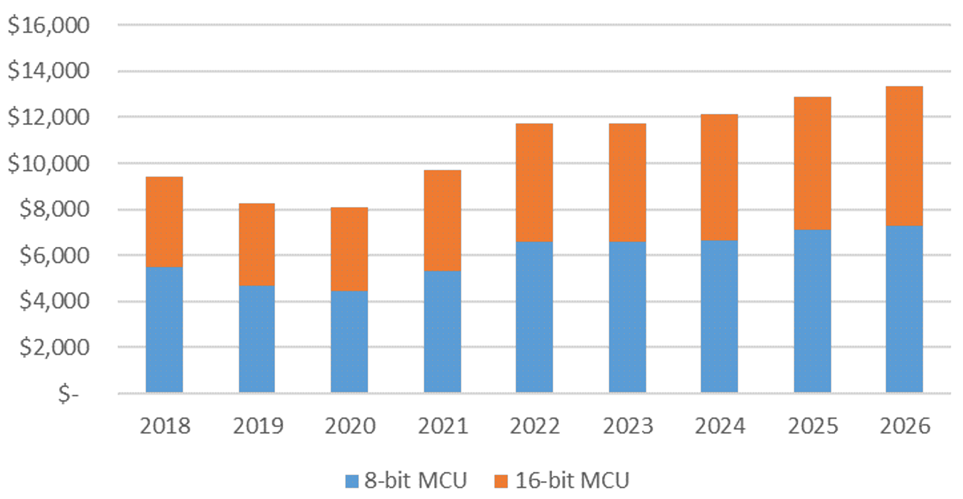 Figure 1 8-Bit and 16-Bit MCU
Market Trend
Figure 1 8-Bit and 16-Bit MCU
Market Trend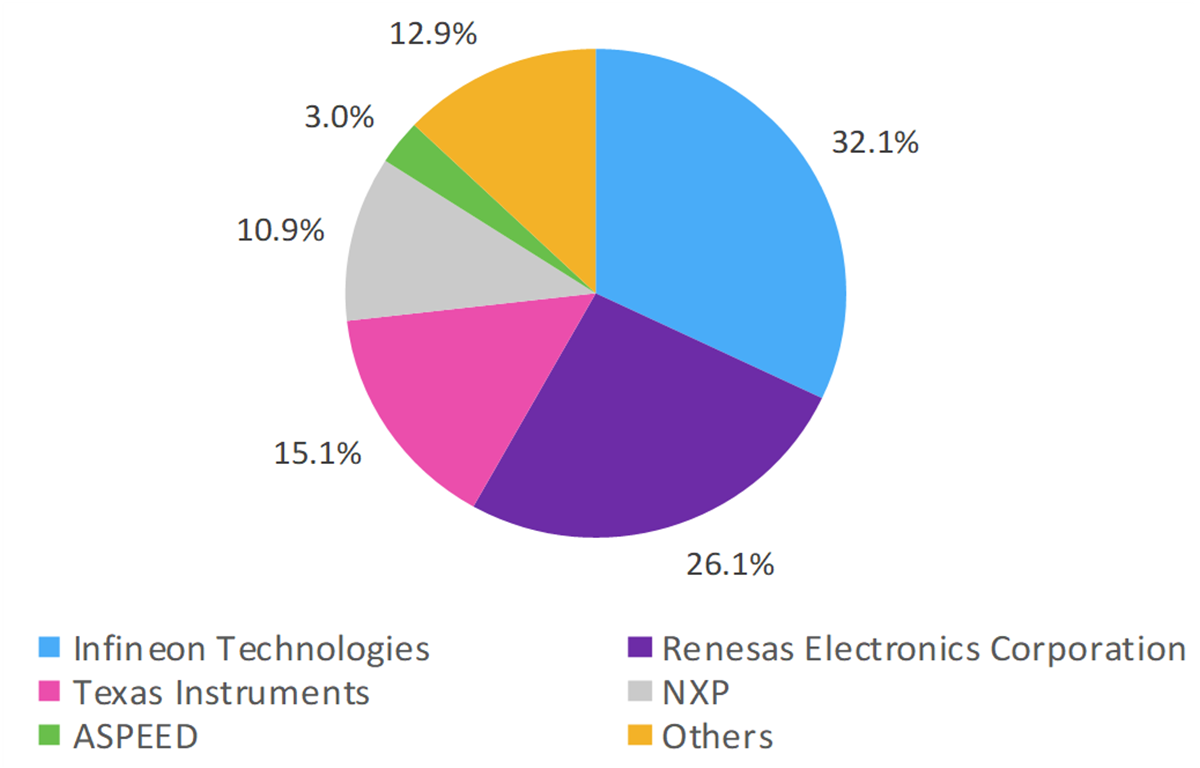 Figure 3 4-Bit and 8-Bit MCU Top Five
Figure 3 4-Bit and 8-Bit MCU Top Five Suppliers in 2021
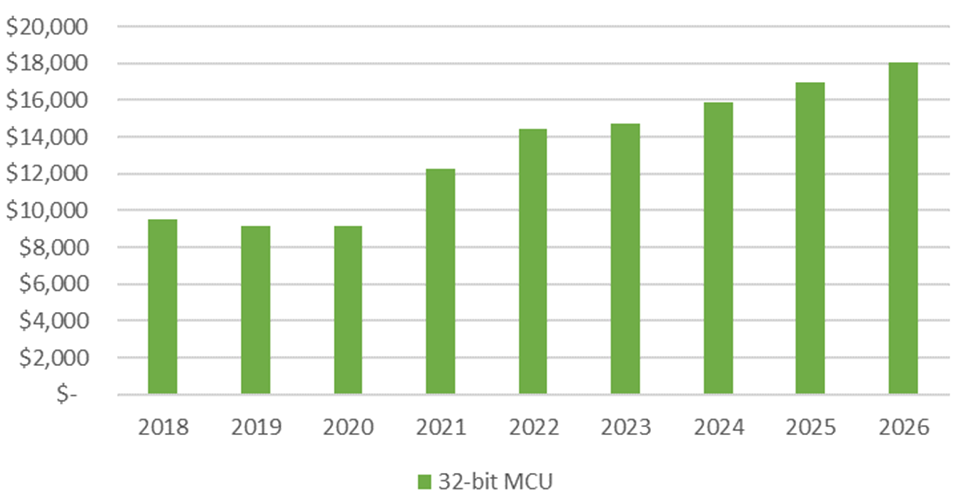 Figure 2 32-Bit MCU Market
Trend
Figure 2 32-Bit MCU Market
Trend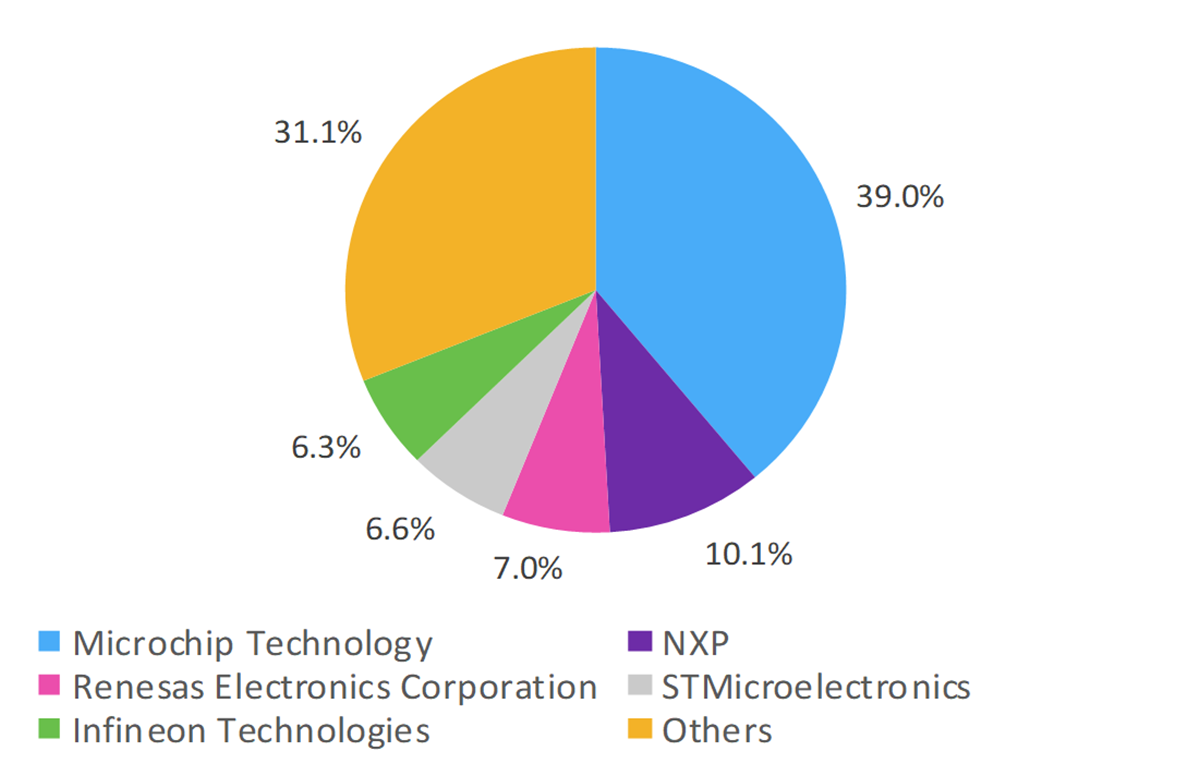 Figure 4 16-Bit MCU Top Five
Figure 4 16-Bit MCU Top Five Suppliers in 2021
Engineers are facing the performance and cost challenges, as the majority of the existing 8-bit and 16-bit MCUs were built decades ago, based on a legacy process node such as 180nm and beyond. These legacy technologies are not able to meet the improved performance requirement, and can be replaced by newer technologies gradually. As a result, those legacy MCUs will not be competitive in the market eventually. But the market still exists for simple and low-cost MCUs for a variety of different applications. To address this market need, TI introduced a new low-cost MSPM0C MCU family based on the newest manufacturing technology and advanced process nodes. The MSPM0C MCU family offers a 32-bit ARM Cortex-M0+ core, that is lower cost but with improved performance.
TI MSPM0C MCU Overview
MSPM0C is part of TI MSPM0 MCU portfolio, MSPM0C is an ultra-low cost, general-purpose, self-programmable MCU targeted at basic system management, such as monitoring, analog sensing, and communication applications. Usually, customers require these MCUs to implement one or two simple tasks. With the new design and advanced technology, MSPM0C offers a wide temperature range from -40°C to +125°C. AEC-Q100 is also available, and can be used in different applications across industrial, automotive, appliances, and personal electronics.
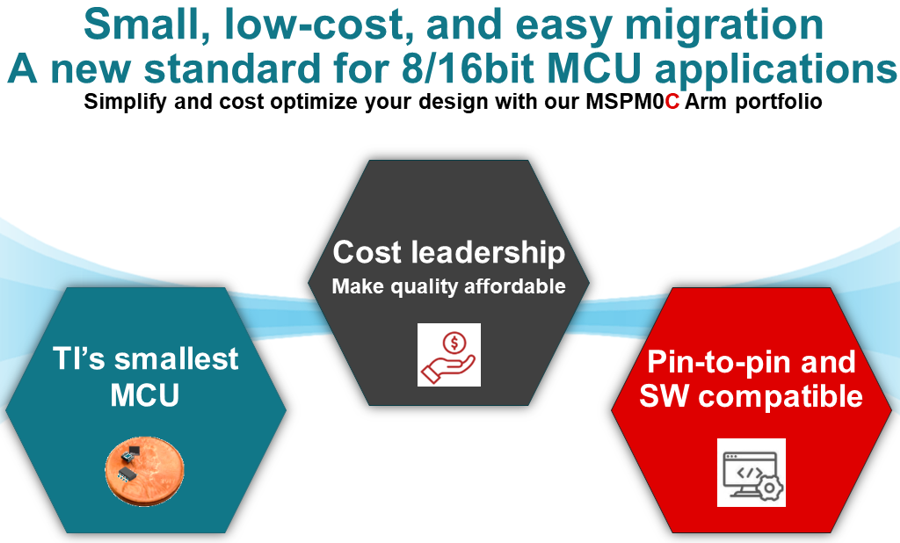
For more information, see the product folder.
- MSPM0C1104 product details and design resources
- LP-MSPM0C1104 product page